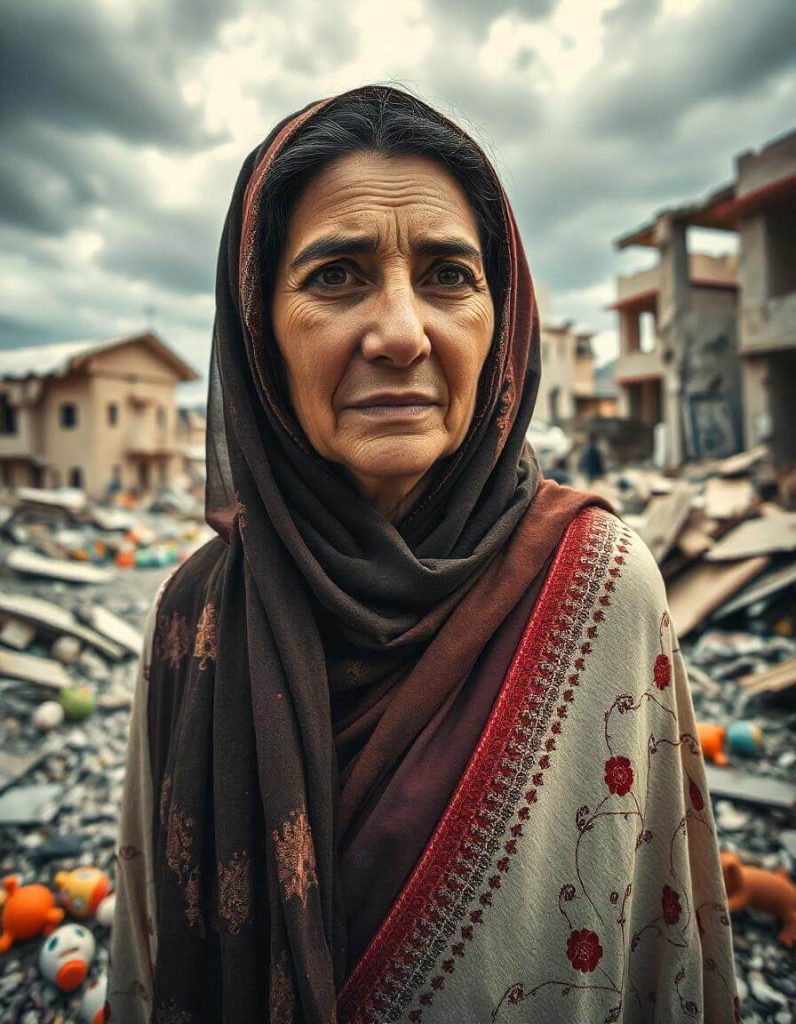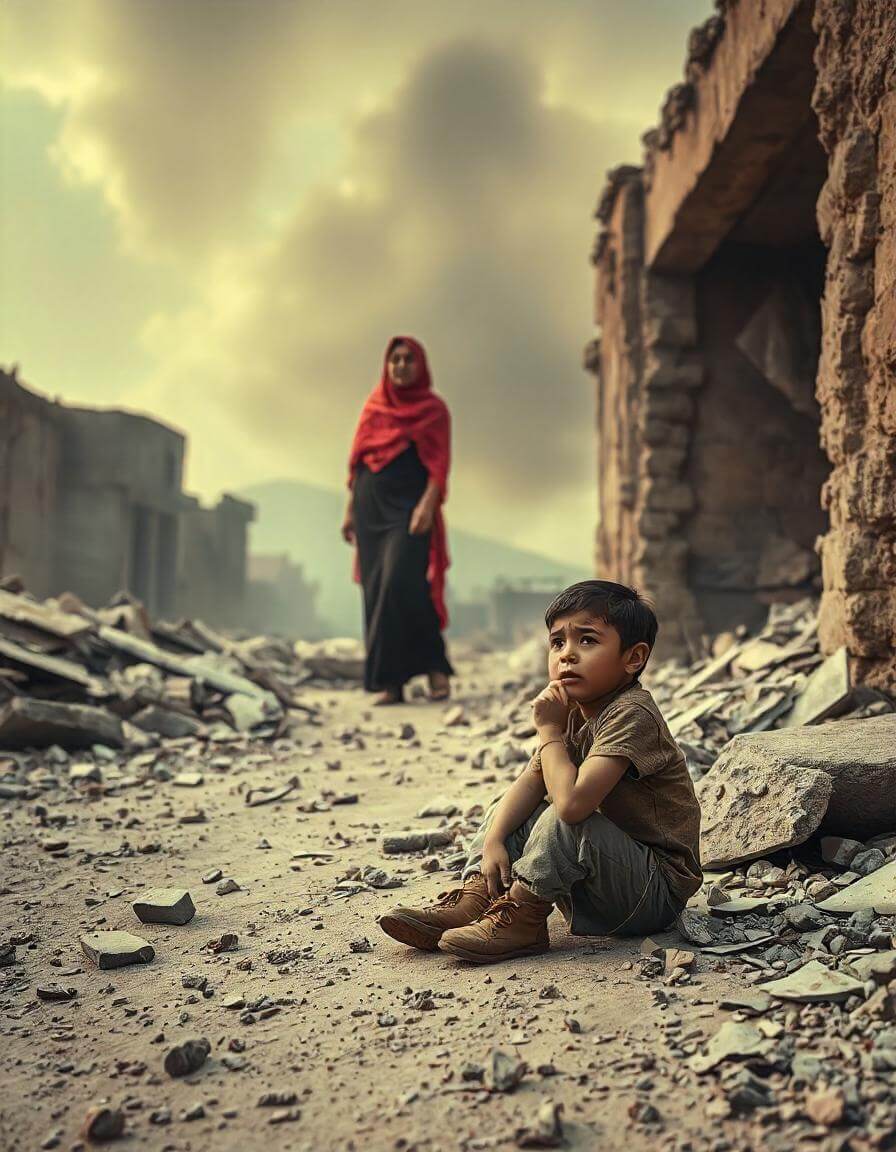Israeli airstrikes on Gaza have allegedly resulted in the deaths of at least 15 individuals seeking refuge in civilian residences, marking one of the most severe periods of fighting in recent years. The assaults occurring on December 19, 2024, have elicited extensive denunciation from the global world, especially with recent reports suggesting that Israel’s conduct may be categorized as ethnic cleansing. The evolving situation has prompted inquiries regarding the international community’s response to the ongoing plight of civilians in Gaza, alongside increasing evidence that the conflict is escalating beyond military confrontations to encompass widespread displacement and deliberate destruction of Palestinian communities.
The Assault on Gaza Shelters
On the morning of December 19, 2024, Israeli warplanes struck various sites in Gaza, including shelters where residents sought sanctuary throughout the continuous assault. Witnesses observed explosions demolishing entire structures, entombing individuals within. Official Israeli sources have characterized the strikes as aimed at Hamas military infrastructure; nevertheless, humanitarian organizations and local officials have condemned the strikes for impacting civilian areas with insufficient consideration for the protection of innocents. The 15 fatalities represent the most recent addition to an escalating toll, which has resulted in hundreds of Palestinian civilians being killed or injured in recent weeks, as Israeli troops persist in their operations in Gaza.
Rescue personnel on-site have been diligently extracting survivors from the debris; nevertheless, the devastation is so extensive that many are presumed stuck, with minimal prospects for survival. The entire community observes with astonishment as numerous experts caution that Israel’s current actions may constitute systematic ethnic cleansing, an assertion that has elicited both endorsement and vehement dissent worldwide.
Allegations of Ethnic Cleansing
The latest surge in violence in Gaza has prompted additional assessments from human rights organizations indicating that Israeli activities have transcended mere military operations and now exhibit traits of ethnic cleansing. These accounts, supported by many Palestinian and international watchdogs, indicate that Israel’s measures are intended to forcibly displace substantial numbers of Palestinians from Gaza, especially in regions of historical significance to Palestinian identity.
Human rights organizations such as Amnesty International and Human Rights Watch assert that Israel’s intentional assault on civilian shelters, residences, and essential infrastructure in Gaza constitutes a breach of international law. These organizations assert that the extensive displacement of Palestinians, the demolition of their residences, and the assault on populations through airstrikes and artillery constitute ethnic cleansing. They contend that these efforts aim to disrupt the territorial continuity of Gaza, so complicating or precluding the return of Palestinians to their homes after the violence abates.
Subsequent reports suggest that Palestinian citizens are being coerced into vacating their residences, with some receiving warnings from Israeli officials to evacuate certain areas designated as “danger zones.” The approach of displacing and destroying homes and infrastructure has engendered concerns that Palestinians are being deliberately expelled from the region to facilitate Israeli settlements, a practice that has been widely denounced by the international community.
Global Responses
The global community has reacted with a combination of concern, denunciation, and demands for accountability. The United Nations and many human rights organizations have called for an immediate halt to hostilities and an inquiry into allegations of ethnic cleansing. The UN Secretary-General has urged immediate deliberations at the Security Council to confront the bloodshed in Gaza and to hold Israel responsible for possible violations of international law.
Nonetheless, Israel’s allies, such as the United States and other European countries, have upheld Israel’s right to self-defense against what they characterize as terrorist entities in Gaza, especially Hamas. The Israeli government has asserted that their attacks target Hamas military infrastructure and weapon stockpiles, acknowledging that civilian losses are an unfortunate yet unavoidable consequence of the protracted conflict.
Nonetheless, numerous critics contend that Israel’s military action unfairly impacts civilians and may precipitate a prolonged humanitarian crisis in Gaza. Human rights organizations have demanded an independent inquiry into Israel’s actions and accountability for those responsible for attacking civilian infrastructure.

The Humanitarian Crisis in Gaza
The protracted conflict has caused extensive destruction throughout Gaza, with entire districts obliterated and essential infrastructure, including hospitals, schools, and water supply, significantly impaired. The United Nations estimates that over 50,000 Palestinians have been displaced from their residences since the onset of the recent hostilities, with many currently seeking refuge in congested shelters or improvised camps.
Alongside the physical devastation, Gaza’s healthcare system is experiencing immense strain. Hospitals are grappling with the rising influx of injured people, as medical supplies dwindle and personnel are inundated by the magnitude of the casualties. Reports indicate that medical facilities are being targeted in the assaults, exacerbating the critical situation.
The siege on Gaza further exacerbates the situation by severely restricting the flow of commodities and individuals in and out of the region. Humanitarian assistance has been postponed or altogether obstructed, resulting in thousands of civilians without access to food, medication, and other vital resources.
Anticipating the Future
Amid escalating violence and increasing fatalities, there are intensifying demands for international intervention to establish a truce and safeguard Palestinian civilians. The situation in Gaza has reached a critical juncture, and many apprehend that without immediate intervention, the territory could deteriorate further into disorder, with lasting repercussions for both Palestinians and Israelis.
The matter of ethnic cleansing is profoundly controversial, eliciting significant disagreements among world leaders and within the international community. As stories of crimes persist, the global community finds it increasingly challenging to overlook the magnitude of suffering in Gaza and the possibility for enduring consequences. The forthcoming days and weeks will be pivotal in ascertaining if the violence can be terminated and whether those liable for the persistent crisis can be held responsible for their acts.
If you are interested for more: Israel Strikes Gaza Shelters, Killing 15 Amid New Reports of Ethnic Cleansing Ajith Kumar and Trisha Krishnan exhibit style while filming Vidaamuyarchi in Bangkok in anticipation of its Pongal 2025 premiere

